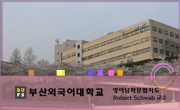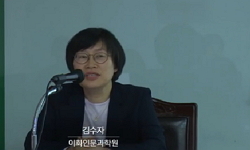이 논문은 국어정화운동을 중심으로 해방 직후의 공공언어 담론과 국어교육 실천의 의의를 고찰한 연구이다. 해방 직후부터 정부 수립 이전 시기까지의 국어정화운동을 공공언어 담론의 관...
http://chineseinput.net/에서 pinyin(병음)방식으로 중국어를 변환할 수 있습니다.
변환된 중국어를 복사하여 사용하시면 됩니다.
- 中文 을 입력하시려면 zhongwen을 입력하시고 space를누르시면됩니다.
- 北京 을 입력하시려면 beijing을 입력하시고 space를 누르시면 됩니다.

해방 직후의 공공언어 담론과 국어교육 ―국어정화운동을 중심으로― = A study on public language discourse and Korean language education immediately after liberation - Focusing on the Korean language purification movement -
한글로보기부가정보
국문 초록 (Abstract)
이 논문은 국어정화운동을 중심으로 해방 직후의 공공언어 담론과 국어교육 실천의 의의를 고찰한 연구이다. 해방 직후부터 정부 수립 이전 시기까지의 국어정화운동을 공공언어 담론의 관점에서 분석함으로써, 당시 국어교육의 당면 과제와 실천이 한국 공공언어 형성과 변천의 역사적 토대임을 밝히고자 하였다. 해방 직후의 공공언어 담론을 신문 기사, 칼럼 등을 중심으로 분석한 결과, 국어의 정체성을 확립하기 위한 언어적 공공성 요건으로 ‘정확성’과 ‘윤리성’을 확인할 수 있었으며, 이를 관통하는 핵심 가치는 ‘탈식민적 인식’이었다. 국어정화운동 및 한자폐지운동은 국어의 정체성을 새롭게 구성하는 과정에서 언어의 공공적 가치를 무엇으로 설정할 것인가에 대한 고민과 실천이 반영되어 있었다. 이를 크게 두 가지로 정리할 수 있다. 첫째, 해방 직후 국어정화운동을 비롯한 국어교육 실천은 일본어를 비롯한 외래어에 대한 척결과 배척이 아니라 비대중적 언어를 일소하고 대중의 각성을 위한 공공언어를 재구성하기 위한 시도였다는 점이다. 둘째, 해방 직후 언어적 공공성을 확보하기 위한 학계와 교육계의 노력은 향후 국어교육 정책과 현장의 내용을 구성하는 데도 직·간접적으로 반영되었다는 점이다.
다국어 초록 (Multilingual Abstract)
This paper examines the significance of public language discourse and Korean language education practices immediately after liberation, focusing on the Korean language purification movement. The movement to purify the national language from immediatel...
This paper examines the significance of public language discourse and Korean language education practices immediately after liberation, focusing on the Korean language purification movement. The movement to purify the national language from immediately after liberation to before the establishment of the government was analyzed from the perspective of public language discourse. Through this, we attempted to reveal that the current challenges and practices of Korean language education were the historical foundation for the formation and evolution of Korea's public language. As a result of analyzing the public language discourse immediately after liberation, focusing on newspaper articles, columns, etc., we were able to confirm ‘accuracy’ and ‘ethics’ as linguistic publicness requirements for establishing the identity of the Korean language, and the core value that runs through this was ‘postcolonial awareness.’ The movement to purify the Korean language and the movement to abolish Chinese characters reflected the concerns and practices regarding what to establish as the public value of language in the process of reconstructing the identity of the Korean language. There are two things to this. First, the practice of Korean language education, including the Korean language purification movement immediately after liberation, was not an attempt to reject foreign languages such as Japanese, but to eliminate unpopular languages and reconstruct a public language for the awakening of the public. Second, the efforts of the academic and educational circles to secure linguistic publicness immediately after liberation were directly and indirectly reflected in the composition of Korean language education policies and field content.
동일학술지(권/호) 다른 논문
-
- 한국공공언어학회
- 강민정
- 2025
- KCI등재후보
-
기독교 교육 분야의 학술용어 정비 실태 및 기독교 용어에 관한 인식 연구
- 한국공공언어학회
- 김수정
- 2025
- KCI등재후보
-
- 한국공공언어학회
- 김영진
- 2025
- KCI등재후보
-
외래어 개념의 혼란이 공공언어 개선에 미치는 부정적 영양
- 한국공공언어학회
- 이건범
- 2025
- KCI등재후보




 KISS
KISS






